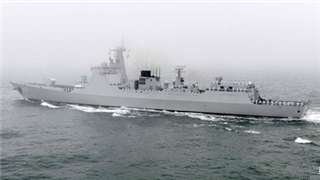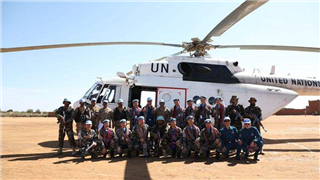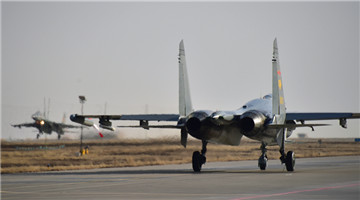By Zamir Ahmed Awan
A friend indeed is a friend in need. Pakistan firmly stands with China at this critical moment of an epidemic outbreak.
Pakistani Prime Minister Imran Khan said the Pakistani side highly appreciates and firmly supports China's efforts to combat the epidemic and expresses gratitude to China for providing help to Pakistani citizens in China. The Pakistani side strongly believes that China can give full play to its unique institutional advantages to overcome the epidemic, Khan said, adding that Pakistan is willing to mobilize all the country's medical supplies and reserves to assist China, and will firmly stand alongside the brotherly Chinese people.
Meanwhile, China is struggling to contain the viral outbreak centered in Wuhan where medical supplies are increasingly under stress, the Pakistani government has sent its first consignment of aid to China to facilitate the Chinese government's fight against the novel coronavirus.
The Pakistani government has allocated 300,000 medical masks, 800 hazmat suits and 6,800 pairs of gloves from the stocks of public hospitals around the nation and transported the aid to China. The medical supplies from Pakistan arrived in China this past Saturday. The Spokesperson of China's Ministry of Foreign Affairs also made a comment about aid received from Pakistan. "To help China fight against #nCoV, Russia, Pakistan, ROK, Belarus, France, Germany, Malaysia and UNICEF, as well as many others are all providing assistance and support to China. Thanks to you all! A friend in need is a friend indeed,” tweeted the spokesperson.
This move by Pakistan although not enough to solve all needs still demonstrates the Pakistani state's unswerving solidarity with their brethren in China. The people of Pakistan are also standing with the Chinese nation. For example, a 29 year old Pakistani teacher by the name of Muhammad Usman Janjua at Changsha Medical College is voluntarily on ground-zero in Wuhan, helping out with the medical emergency situation. Usman graduated from Hunan University of Traditional Chinese Medicine with a bachelor's degree in 2012, and a master's degree in medicine at Central South University in Changsha. After graduation, he became a foreign teacher at Changsha Medical College. During the four years since his return to his hometown, he has always been unable to forget China and Changsha, he said that China has provided him with good opportunities for education and employment and helped him to realize his dreams.
Fortunately, the novel coronavirus is not as dangerous as its fatality rate is around 2% while SARS had a higher fatality rate of 10%. In time, measures made it possible for the city to isolate itself from other parts of the country and world. China has overcome SARS in the past and accumulated some relevant experiences. Based on its previous experience, China handled the situation appropriately and addressed the issue in time. China reacted maturely and with full responsibility and shared all information with the international community in a very transparent and timely manner.
It is time for the international community to extend a cooperative hand toward China in overcoming this epidemic. The most important aspect will be to develop a vaccine. The developed world having rich experience of developing vaccines may come forward voluntarily.
China is a major contributor to the global economy, the Chinese share in the global economy is almost one third. Any harm to the Chinese economy may result in direct harm to the global economy, especially the developing world may suffer more in case of any negative impact on the Chinese economy. Natural disasters are beyond human control and can happen to any country or any nation at any time. It can be in the form of Earthquakes, Floods, Volcanoes, Tsunamis, Fire, or epidemics. Such disasters may be addressed collectively and the whole world must join hands with China to overcome this disaster. Some individuals or nations may exploit this situation for political or economic purposes, which must be condemned and avoided.
Zamir Ahmed Awan is a senior fellow with the Center for China and Globalization (CCG) and a sinologist at the National University of Sciences and Technology in Pakistan. E-mail: awanzamir@yahoo.com











